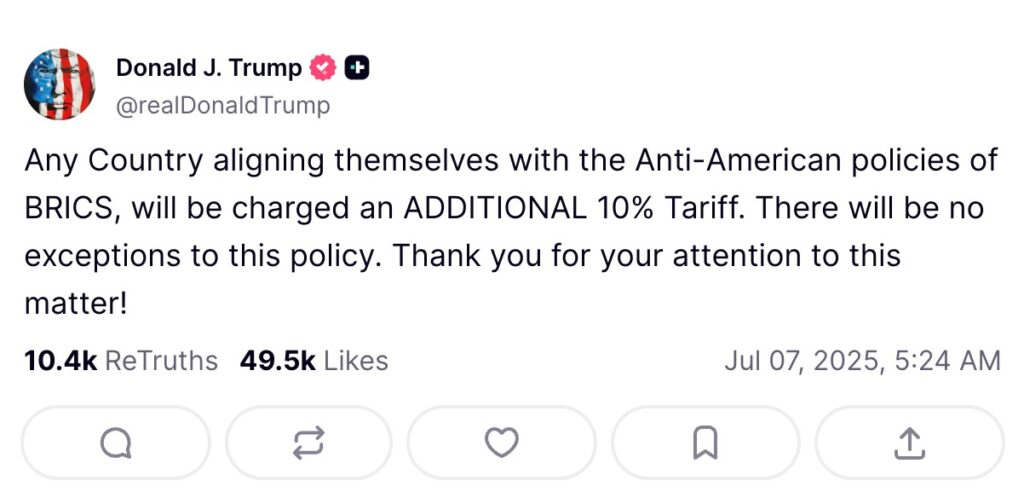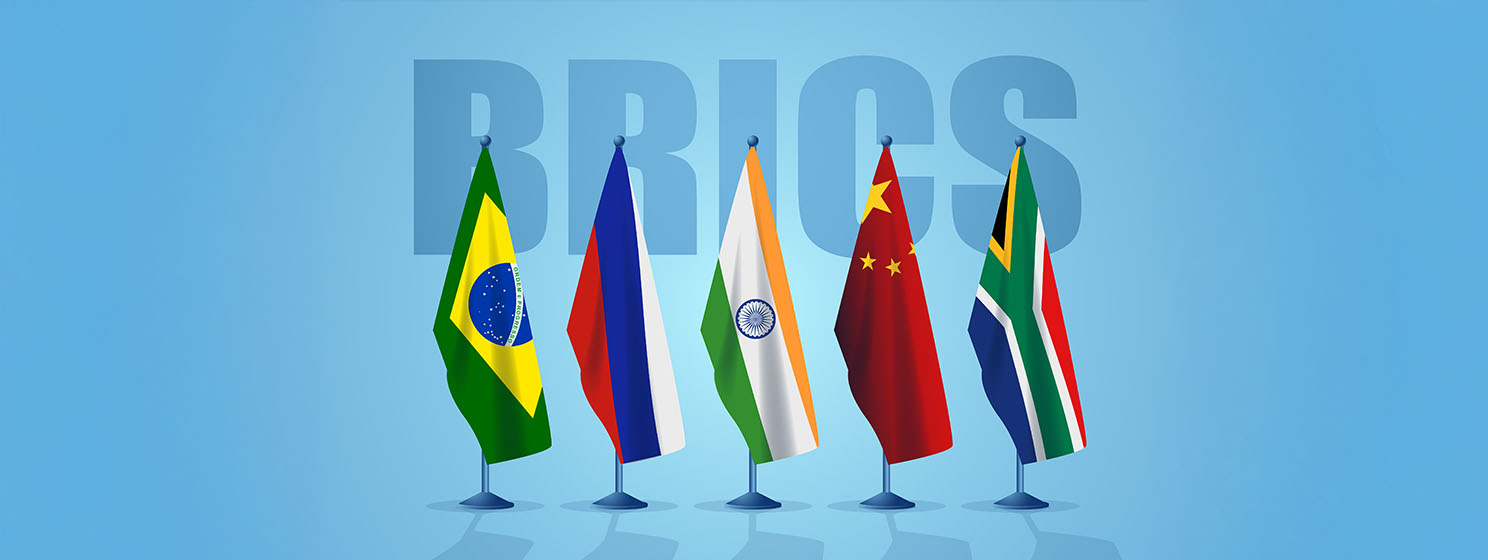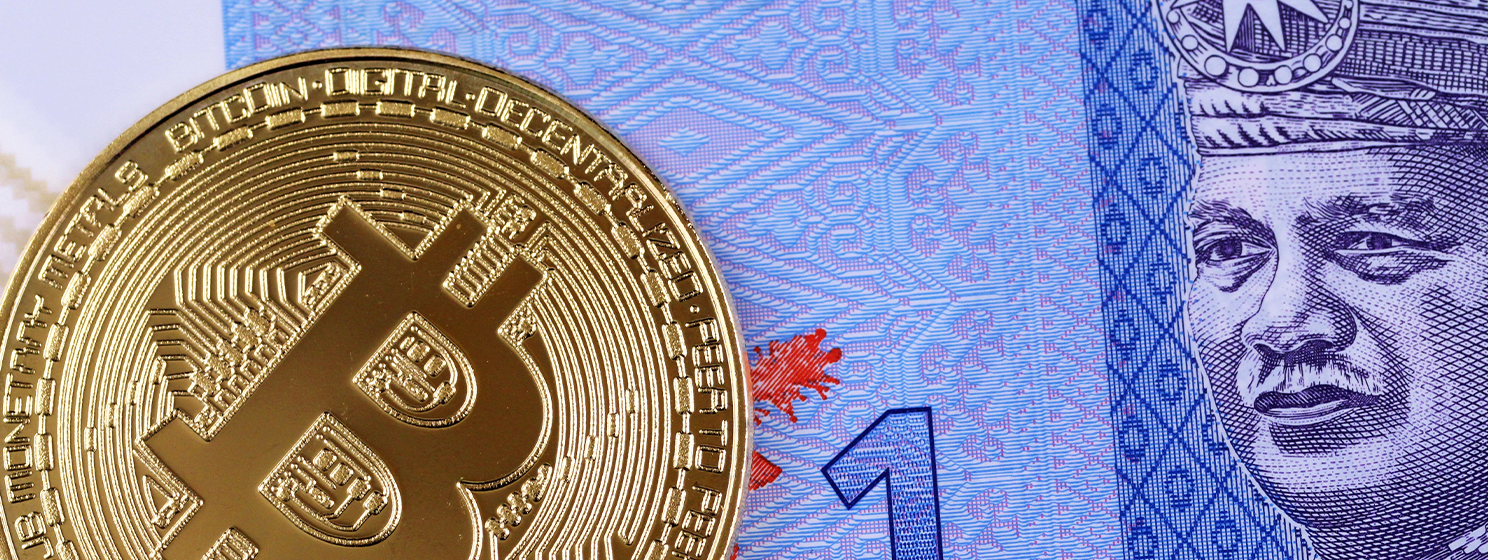|
Getting your Trinity Audio player ready...
|
At the 17th BRICS Summit in Rio de Janeiro, a new payments system for the members was one of the main topics on the agenda. Belarus proposed a central bank digital currency (CBDC)-linked system that would ease cross-border payments and reduce the dependency on the United States dollar.
However, a new system is still years away, according to some of the officials at the summit, and Donald Trump’s fresh tariff threat only adds to the uncertainty.
Belarus: CBDCs are the solution for BRICS
At the Rio Summit, heads of state and top government officials of the 10 BRICS members and other partner states discussed new financial rails that could reduce dependence on Western-controlled systems like SWIFT. The bloc has been exploring alternatives for at least a decade, but according to sources at the event, they are not any closer to a solution.
Belarus, which was represented by Foreign Affairs Minister Maxim Ryzhenkov, says CBDCs could be the solution.
“We support efforts to create a multi-level settlement system that combines innovative payment instruments with reliable security mechanisms,” he said, according to a statement by the ministry.
“In order to improve the financial infrastructure of the BRICS member countries, Belarus proposes to consider the possibility of integrating central bank digital currency platforms as they become legally and technically ready for integration.”
It’s not the first time a CBDC system has been proposed. In 2024, speculation was rife that mBridge, the cross-border CBDC project that includes Thailand and China, would form the basis of a BRICS CBDC system, prompting the Bank for International Settlements’ (BIS) exit from the project (although it issued diplomatic reasons for its departure).
However, the bigger economies in BRICS have indicated that such a system is years away. Russia, for instance, has noted that all the members would need to develop new national systems that can integrate into the network, and that they may have to explore easier alternatives in the short term.
At the Rio Summit, officials told Bloomberg that while all the members are in support of a new system, the technical requirements are currently too complex. There are also economic questions, such as how to share the costs and the settlement currencies; currently, most members’ currencies are non-convertible.
The expansion in the bloc’s membership has also further complicated the potential rollout of any new system. BRICS now has ten members, with the United Arab Emirates, Indonesia, and Egypt among the new members. Saudi Arabia has officially been invited and is “studying the terms”; it’s expected to join the bloc officially in the near future.
Supporting BRICS will earn you 10% extra tariffs, Trump warns
In addition to the technical and economic complexities of developing a new global payment system, a new challenge faces BRICS: looming tariff threats by U.S. President Donald Trump.
As the bloc congregated in Brazil, Trump threatened to slap an extra 10% tariff on any nation that aligns with “the Anti-American policies of BRICS.”
“There will be no exceptions to this policy,” he added.

While he didn’t elaborate on the “anti-American policies,” experts say it was a thinly veiled reference to the bloc’s proposed payments systems, which seek to move away from the U.S. dollar.
BRICS leaders quickly responded to the threat, with Brazilian President Luiz Inácio Lula da Silva terming it as “very mistaken and very irresponsible.”
“The world has changed. We don’t want an emperor. We are sovereign countries,” Lula stated. “The world needs to find a way so that our trade relationship does not need to go through the dollar. Nobody has determined that the dollar is the currency standard.”
Russian Foreign Minister Sergei Lavrov said the threat was proof that the U.S. only preaches globalization when it favors American interests. Lavrov, who stood in for Putin in Rio, added that the U.S. had “flagrantly abused” the dollar to exert influence on other nations.
While the BRICS nations fought back in Rio, history has shown that Trump’s threats hold weight and can quickly erode a nation’s resolve. When the Republican leader aimed at South Africa over de-dollarization plans, the Cyril Ramaphosa government quickly issued a statement claiming it had no intention of ditching the greenback.
Watch: Finding ways to use CBDC outside of digital currencies

 02-20-2026
02-20-2026 




